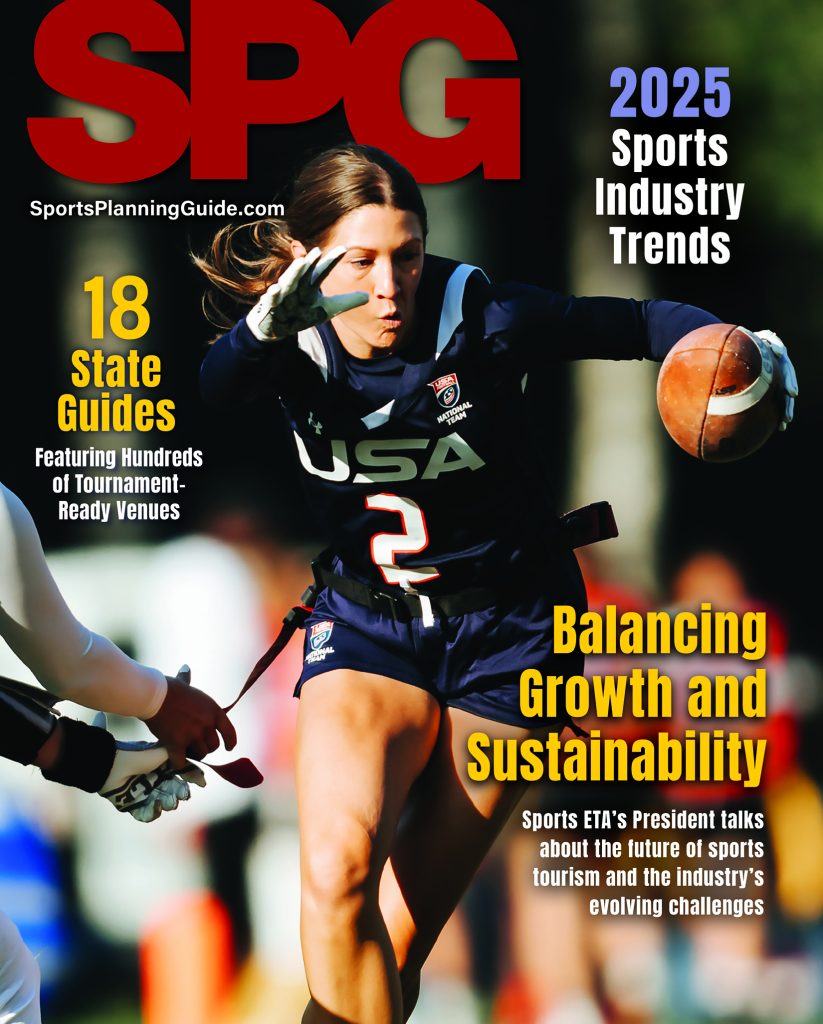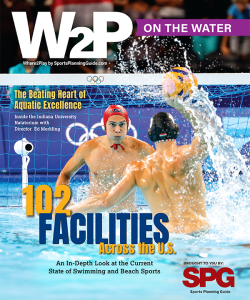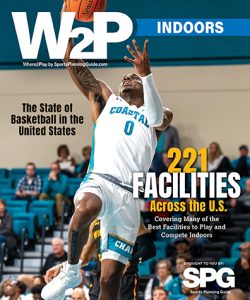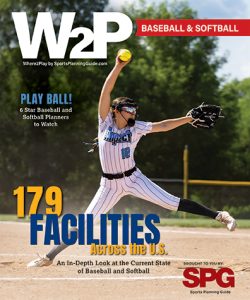Winston Churchill, near the end of World War II, is credited with saying, “never let a good crisis go to waste.” Others in the political realm have made similar statements over the years. But I think that few in the sports tourism industry would embrace this philosophy today, as it is clear COVID-19 has inflicted substantial social and economic damage that will take years to repair. So, don’t manage this crisis – instead, solve it through an aggressive approach that focuses on both internal capabilities and external outcomes. Let’s look at five strategies that will enable your business to emerge stronger than ever.
#1 Build Your Capabilities
The pandemic has created an opportunity for individual growth and preparation, including:
- Professional advancement through academic coursework and CEUs
- Adjacent skill development that broadens and deepens work capabilities
- Certification, compliance and training programs that bring additional proficiency
With many employees working from home with additional scheduling flexibility, it is the ideal time to prepare for the changing demands, post-pandemic. With good time management, you can kickstart your career and be more valuable than ever. Some of your far-off plans for the future can be accommodated now, providing a renewed sense of enthusiasm for your work. And, while you are building your job-related competencies, don’t forget to use this timeframe to improve your physical fitness, with a regular exercise program that enhances your health and well-being. Mental health can be a byproduct of a healthy lifestyle of physical activity.
#2 Become More Tactical
Every organization in the sports tourism industry had a strategic plan, but I doubt that any had authored a SWOT analysis that included “global pandemic” in the listing under “Threats.”
What is the lesson from this? Very simply, our best long-term plans are less certain than we may have previously understood. The traditional five-year window for strategic planning may bring a false sense of security in our rapidly changing and tech-centric world.
During the pandemic, consider how much our knowledge of the coronavirus changed from January to April; or, from April to August. Plans made at the beginning of 2020 would have changed several times due to the more localized circumstances of restaurant regulations and hotel closings. Clearly, even a one-year planning cycle appears to be too long with so many “twists and turns” occurring on a regular basis.
Instead, think of a series of short-term tactical plans that are anchored in a well-defined strategic direction. Choose a three-month planning window that allows you to change course with a higher level of flexibility. Your goal should be to remain as nimble as possible, making adjustments to current conditions. Maintaining your strategic focus while simultaneously adjusting to newly available information is not necessarily easy within an industry that plans events and activities years in advance, but it represents the new reality of how we need to change and adapt.
#3 Think and Act Like an Underdog
For successful DMOs, it may be difficult to remember the struggles that were necessary to reach the pinnacle of success. In particular, the “tried and true” methodologies that have produced important achievements over the years can become so ingrained within organizational culture that innovation and fresh approaches can be sidelined.
- Taking on the character of an underdog includes some or all of the following:
- Celebrating small victories, but always retaining the desire to do more and to do better
- Establishing achievable goals and, after accomplishment, setting new goals that necessitate focus and determination
- Communicating frequently with your customers and clients, and never taking their business for granted
- Retaining the personal touch that values relationships, not just contracts and bookings
- Fighting “bigness” and always looking for ways to prevent unnecessary bureaucracy
The underdog mentality is team-focused and can be a source of great strength in bringing together the entire employee group. It represents an attitude of continued hunger for success, rather than the complacency that can emanate from previous victories.
#4 Play to Win
After we emerge from the restrictions of the pandemic, there clearly will be some winners and some losers. Some of the cities that had previously enjoyed great success may find that they were paralyzed by inaction that was the byproduct of uncertainty. On the other side, there will be cities that embraced the uncertainty, found new solutions, and emerged stronger than ever. Which will you be?
Simply, the cities that thrive during uncertain times will be those that play to win, instead of those that play not to lose. They are the cities that constantly played offense, rather than playing defense. Or even worse – those that played the “prevent defense” that invariably loses games on Sunday afternoons in the NFL.
Playing to win has some or all of the following characteristics:
- Creating a results-oriented and aggressive approach to all of your event attraction and bidding activities.
- Modeling the mindset and intensity of successful coaches and campaign managers, whose only metric is winning the game or winning the election
- Focusing on a plan that everyone can embrace and that includes realistic and achievable goals
- Creating discipline around spending that ties directly to strategy so that money is spent only on activities or services that can lead directly to victory
- Refusing to compromise on your objectives so that there is a clear distinction between winning and losing, with no “moral victories” Playing to win is an attitude, backed up by sound policies that reward aggressiveness. Once it is instilled within the employee group, it is contagious and creates an environment where success is an expectation, not just a hope or a dream.
#5 Communicate the Essence, not the Brand
We know the sports tourism industry is highly competitive, and thus, creating differentiation becomes a critically important element of success. However, we also understand that strengths and weaknesses are relative, not universal, as cities compete against a varying group of cities, depending on the event.
Cities spend considerable sums of money to create distinctive brands, but the taglines and logos inherent in the process rarely achieve traction. Consider this: with the exception of Las Vegas (which has more successfully defined its essence than any other American city), can you recollect the brand of any city in the country? Perhaps, for some our largest cities like Houston, Chicago or Phoenix? While those cities may create mental images from previous visits, this is not the same as their brand.
So, recognizing that city brands are so spectacularly unsuccessful, a city can communicate its distinctiveness through some or all of the following methods:
- Consider that the sports events that you choose to attract send a message about your city. Cycling and canoe/kayak events project a green image, while Formula One and e-sports are fundamental to showcasing your city as a center of information technology.
- What do you want to be known for, or how would you like to be viewed externally? If your goal is to illustrate that your city values social inclusion, then events for physically and intellectually disabled individuals should be a priority.
- What are the primary goals of the Mayor, the City Council, and the business community? Once you understand their key objectives, attracting events that are complementary to their plans helps to reinforce the most important community messages.
The pandemic provides the opportunity to re-define who you are, what you do, and why people should care about you. It is a time to invest in smart research to choose events that are “winners” for your city, not just economic impact and room night drivers. If there is a single and overarching message to all of us in the sports tourism industry, it is that our efforts must produce results that truly impact communities and resonate for years to come. We must be able to demonstrate our value to the community, not just an increased level of tourism dollars.
That is when we truly win!
Veteran sports executive and nonprofit leader Dale Neuburger directs the overall business direction and management of Burson Cohn & Wolfe Sports Practice in North America.

Neuburger brings an impressive blend of experience in intercollegiate athletics, where he managed world-class athletic facilities as Assistant Athletic Director for Indiana University. He led the nation’s first and most successful sports commission, Indiana Sports Corporation, including the relocation of the NCAA to Indianapolis and the execution of a three-decade championship hosting agreement for its major events. And, he has created a successful sports management consulting company that has been honored for three consecutive years with the NASC/Sports ETA “Superior Service Award” for exemplary support of the sports events and tourism industry and outstanding contributions to the advancement of the profession.







